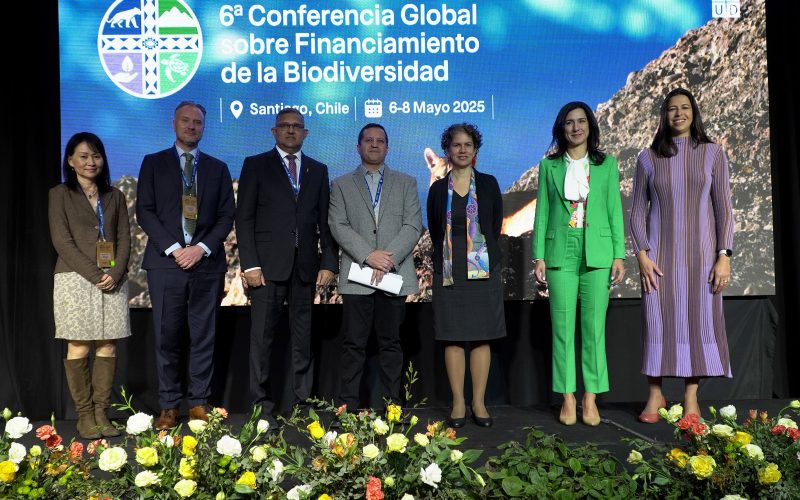The world’s largest gathering dedicated to nature and finance opened in Chile on Tuesday, as over 130 countries convened to accelerate biodiversity funding and innovation in support of the Kunming-Montreal Global Biodiversity Framework. The 6th Global Conference on Biodiversity Finance, hosted by the United Nations Development Programme (UNDP) and its Biodiversity Finance Initiative (BIOFIN), comes at a critical juncture amid dwindling international aid and rising ecological threats.
Held from 6–8 May, the conference marked a significant global commitment to biodiversity, with 92 new countries advancing national Biodiversity Finance Plans aimed at closing the annual US$700 billion biodiversity financing gap. The event highlighted innovative mechanisms—including nature bonds, repurposed subsidies, fintech solutions, and nature credits—to mobilise both public and private capital for conservation.
In her opening address, Chile’s Environment Minister Maisa Rojas underscored the urgency of integrating biodiversity into national accounts and aligning environmental protection with economic development. “Biodiversity must no longer be invisible. It plays a vital role in economic and social systems, and we are working to connect our climate and biodiversity policies through instruments like our Climate Change Framework Law,” she said.
The event drew senior officials from environment and finance ministries, including cabinet-level delegates, signalling cross-sectoral political will to reform the way nature is financed and valued.
UNDP Assistant Secretary-General Michelle Muschett called biodiversity “the foundation that sustains our economies and societies” and stressed the importance of financing models that link conservation to broader development goals. “UNDP is committed to advancing solutions that protect ecosystems and foster resilience, especially in Latin America and the Caribbean—one of the world’s most biodiverse regions,” she said.
The conference also highlighted the role of catalytic financing. UNDP’s BIOFIN initiative has mobilised over US$1.6 billion since 2018 by using small, strategic investments to unlock significantly larger funding streams. This “finance-for-finance” model has already yielded tangible results in countries including:
- Botswana, where changes to protected area fees raised an additional US$7 million in park revenues.
- Argentina, which developed a US$420 million biodiversity finance strategy incorporating jaguar conservation insurance.
- Ecuador, where more than US$800 million in microloans with environmental safeguards have driven nature-positive business growth.
- Thailand, where a visitor fee on Koh Tao island has raised US$314,000 for marine conservation.
- Kazakhstan, where reforms have tripled protected area budgets to US$70.3 million since 2018.
Private sector engagement was another key theme, with calls to increase investments through green bonds, access and benefit-sharing mechanisms, and contributions tied to the use of genetic resources.
Carlos Manuel Rodríguez, CEO of the Global Environment Facility (GEF), said the partnership with BIOFIN is helping governments realign financial flows to ensure biodiversity becomes integral to economic policy, not an afterthought.
Repurposing environmentally harmful subsidies was also identified as a priority. UNDP is working with countries to redesign subsidy frameworks that currently support activities detrimental to ecosystems, creating a win-win scenario for fiscal efficiency and environmental protection.
According to UNDP’s Nature Pledge, transitioning to a nature-positive global economy could generate up to US$10 trillion in new business opportunities. “This conference showcases the momentum we are building to transform how we value nature in financial systems,” said Midori Paxton, UNDP’s Global Director of the Nature Hub.
The Chile conference comes ahead of major 2025 milestones, including the Fourth International Conference on Financing for Development in Spain and COP30 in Brazil. It offers a platform to align biodiversity finance with national development strategies and the Sustainable Development Goals.
Delegates also stressed the interlinked nature of the climate and biodiversity crises. As ecosystems collapse under pressure from human activity and climate change, the planet’s ability to regulate carbon and provide natural resilience is rapidly diminishing.





















